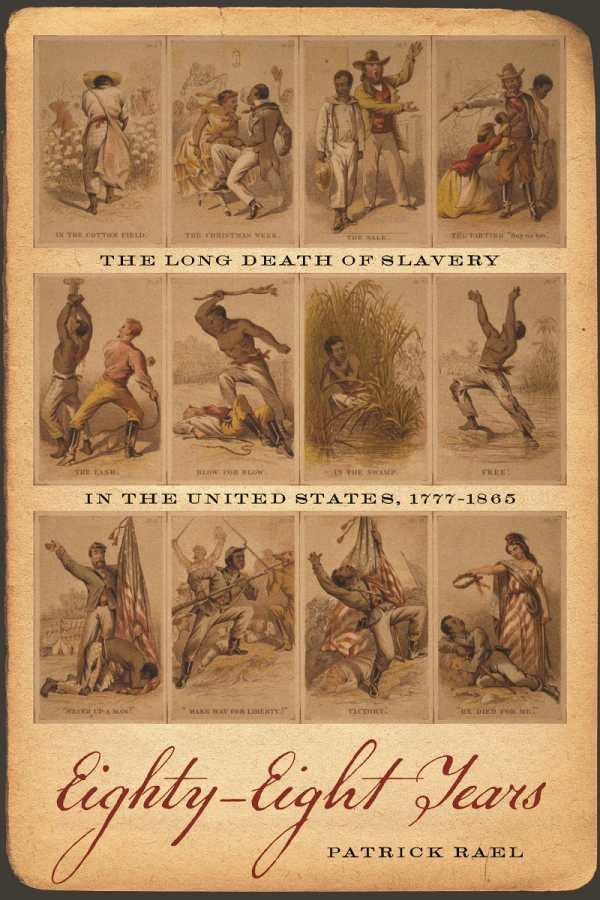Eighty-Eight Years
The Long Death of Slavery in the United States, 1777--1865
Dr. Samuel Johnson, the famed British lexicographer and essayist, was at his acerbic best when he described those in Britain’s American colonies who bemoaned taxation without representation: “How is it that we hear the loudest yelps for liberty among the drivers of Negroes?” he wondered.
Patrick Rael, a history professor at Bowdoin College and the author of several books about blacks’ struggles for equality, notes that even though Johnson’s comment was but an aside in a pamphlet attacking revolutionists, it stands as a stinging indictment of the American hypocrisy that helped sustain slavery, even as it was abolished elsewhere.
The eighty-eight years Rael refers to are between 1777, when Vermont adopted its constitution outlawing slavery, and 1865, when the Thirteenth Amendment to the US Constitution giving equal rights to blacks was ratified. The process, he writes, was more protracted at other places in the Atlantic sphere such as Haiti, Cuba, Brazil, and other Spanish colonies largely because of the disproportionate political and economic influence of the Southern states, with their plantation economies that depended on slaves. Also, he argues, as capitalism evolved with its emphasis on the sanctity of property rights, slaves came to be largely regarded simply as chattel to be bought and sold in the marketplace.
After the Civil War, with its seven hundred thousand casualties, blacks had a brief moment before Reconstruction devolved into a time when blacks were again subjugated by the sharecropper system, Jim Crow laws, lynching, and the like. And so, Rael writes near the end of the book, “slavery died, racism persisted.”
Reviewed by
Thomas BeVier
Disclosure: This article is not an endorsement, but a review. The publisher of this book provided free copies of the book to have their book reviewed by a professional reviewer. No fee was paid by the publisher for this review. Foreword Reviews only recommends books that we love. Foreword Magazine, Inc. is disclosing this in accordance with the Federal Trade Commission’s 16 CFR, Part 255.

